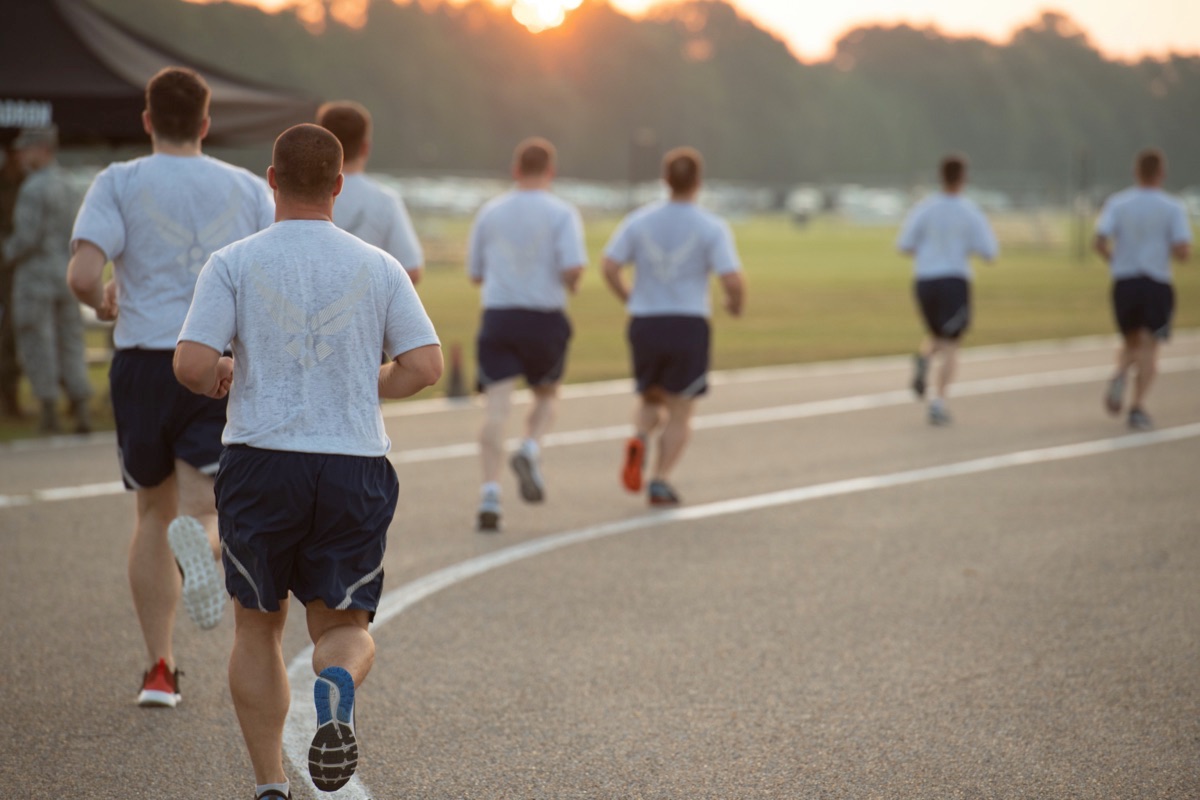

The US Air Force recently updated their physical fitness assessment after almost 20 years. The new PT test includes several major changes, such as permanently removing the body composition waist measurement component from the assessment, and breaking the age groups into five-year bands instead of the previous test scoring charts that featured 10-year age groups.
The fitness test still includes the 1.5-mile run, pushups, and sit-ups. However, Airmen are now able to substitute these core testing activities with another activity designed to assess the Airman’s physical fitness. These other test options include a timed shuttle run, hand release pushups, reverse crunches, and planks.
Airmen are required to participate in one activity from each of the primary three groups: running, upper body strength, and core strength.
Here are your test options:
Airmen will determine which test component they will complete when they fill out their Fitness Screening Questionnaire and provide it to their Unit Fitness Program Manager.
Here is a video overview of the new Air Force fitness assessment:
The Cardio test includes two options, the 1.5-mile run and the HAMR (high aerobic multi-shuttle run). There are no changes to the 1.5-mile run, with the exception of the scoring, which we’ll cover in a moment.
The HAMR is a 20-meter timed shuttle run. Airmen perform 20-meter sprints to the tempo of a recorded beep that gets progressively faster. Failing to cross the 20-meter line before the beep on three consecutive sprints ends the test. The minimum number of HAMR sprints required to pass the PT test will be covered later in this article.
The upper body strength test elements are the standard pushup and the hand-release pushup. Like the previous Air Force PT test, Airmen will have one minute to complete as many pushups as they can.
Airmen will have two minutes to complete as many HR pushups as possible.
Airmen have three options for the endurance portion of the PT test, standard situps, cross-leg reverse crunches, or forearm planks.
Airmen still have one minute to perform as many situps as they can. They will have two minutes for the cross-leg reverse crunches. Forearm planks are scored based on how long the Airman can hold the position, with a maximum score at 3:35 for younger age groups. See the links to the full testing score charts below for the times and scores for both genders and all age groups.
The Air Force PT maintains separate scoring standards for males and females and breaks each gender into nine age groups: under 25, 25-29, 30-34, 35-39, 40-44, 45-49, 50-54, 55-59 and over 60.
Airmen can score up to 60 points on the cardio fitness test, 20 points on the upper body strength test, and 20 points on the core strength test.
To pass the physical fitness assessment, Airmen must score at least 75 points across all three tests and meet at least the minimum standard for each test.
Here are the scoring categories:
See the following links for the score charts for each age group. You can also download all charts from the Air Force website.
Q: Where can I find the official Air Force fitness test rules and regulations?
A: The official testing rules, procedures, and regulations can be found in DAFMAN 36-2905.
Q: I heard the Air Force PT test includes an option for walking? Where can I learn more about this?
A: Air Force leadership was strongly considering adding a timed walk in lieu of the 1.5-mile run. However, while the walk is considered a valid predictor of VO(2max), the Air Force decided not to adopt this as a test option, citing a lack of standardized VO2 measurement equipment across every installation.
Q: Where can I find more information about how to certify the running track, or whether or not it is safe to perform the PT test (inclement weather, precipitation, wind speed, temperature, etc.)?
A: All of this information can be found in DAFMAN 36-2905.
Photo Credit: SSgt Charles Welty, Public Domain. The appearance of U.S. Department of Defense (DoD) visual information does not imply or constitute DoD endorsement.
Categories Fitness Tests